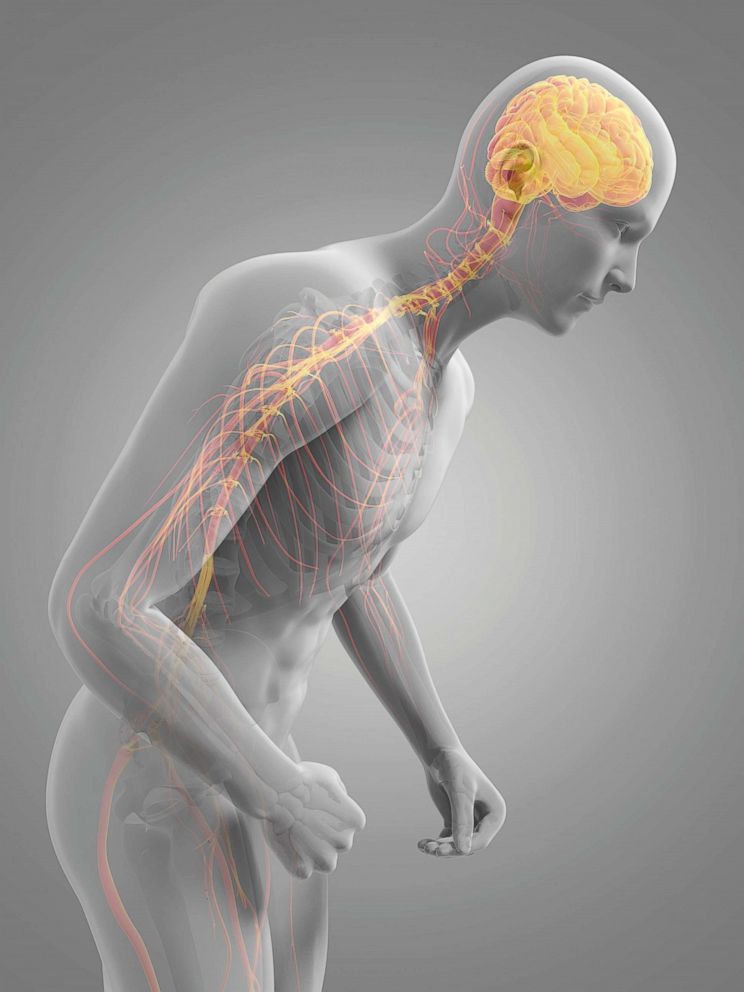Alan Alda has Parkinson's disease. What is Parkinson's disease?
Actor Alan Alda revealed on Twitter that he suffers from Parkinson's disease.
In a surprise announcement today, actor Alan Alda, 82, revealed that he has been living with Parkinson’s disease for three and a half years.
The actor, of M*A*S*H fame, tweeted -- with his characteristic humor -- that to date he’s remaining active and feels fine.
”I take boxing lessons 3 days a week, play singles tennis twice a week, and take a mild pill – all Dr. recommended," Alda said in the tweetl "I even juggle a little. And I’m not entering dementia. I’m no more demented than I was before. Maybe I should rephrase that. Really, I’m good.”
Here's a look at what Alda and millions around the globe are dealing with:
What is Parkinson’s Disease?
With more than one million people affected in North America alone, Parkinson’s disease -- a condition first described in 1817 -- is a brain disorder where nerves are weakened over time, affecting movement. The condition is seen more often after age 50, and is uncommon in people younger than 40.

What causes it?
Researchers don’t yet know. Roughly 10 to 15 percent of people with Parkinson’s also have a parent or sibling with the condition. Most specialists think that this disease likely is the result of a complex combination of genes and environmental causes. But while the cause is unknown, many years of research and working with people with Parkinson’s have given healthcare providers the information to more accurately diagnose it -- and start treatments early to slow the disease and improve quality of life. While there is no cure available now, there are clinical trials to find even stronger and more effective medications and therapies.
What are the symptoms of Parkinson’s?
At first, there may be only mild symptoms –- Alda said he has a tremor in one hand -- but as the disease progresses, symptoms may interfere with a person’s work or everyday activities. Things to look out for: shaking of the hands while sitting quietly, weakness or a loss of coordination of movements, dragging or a shuffling of the legs when walking, or more frequent falls at home. A person may also lose the ability to think clearly, have trouble remembering things, or experience problems with sleep. Loss of sense of smell is also common early in the course of the disease.
Are there treatments?
Current medications help protect nerves, while other medications work to treat the symptoms of the condition. Doctors may also use a combination of medications that work together to create even more effective results.
How do doctors diagnose Parkinson’s?
There is no one test that your doctor can use to diagnose Parkinson’s. Scanning the brain with a CAT scan or MRI is not helpful in diagnosing the disease, but may be used to help rule out other possible diagnoses. Instead, the condition is diagnosed by the symptoms a person is experiencing, and a thorough physical exam looking for particular signs of Parkinson’s. It is often very helpful for family members to be present for the doctor’s appointment – they’ve observed what’s happening and can help answer the doctor’s questions. This may lead to a more accurate diagnosis.
What happens to Parkinson’s patients?
Although Parkinson’s disease is not a fatal disease, it may increase the risk of other falls, choking, or lung infections. It’s important for patients to acknowledge their symptoms and talk to their doctor earlier rather than later. Alda said, in a tweet: I decided to let people know I have Parkinson’s to encourage others to take action. I was Diagnosed 3 and a half years ago, but my life is full. I act, I give talks, I do my podcast, which I love. If you get a diagnosis, keep moving!
Additionally, there is specifically-tailored physical therapy, exercises, speech therapy, and support groups that can make living with Parkinson’s manageable and less intimidating.
Dr. Kevin Riutzel is a family medicine resident physician based out of Irvine, California currently working in the ABC News Medical Unit.




